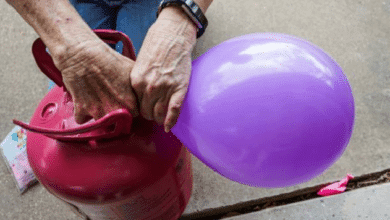The Second Chance: Remaking Your Life After Addiction

Substance addiction can rewrite a person’s future, but recovery holds the promise of a new chapter. The courage to seek help and commit to change is a steadfast declaration to retake control over one’s life. For many, this journey begins with finding the right support system and treatment approach, which can lead to a renewed sense of hope and purpose. Keep reading to explore how the path to sobriety can lead to not just overcoming addiction but also to personal transformation and growth.
The Road to Redemption: Embracing a Life of Sobriety
Recovery is a beacon of hope, illuminating the way for individuals seeking to rebuild their lives after battling addiction. The first steps on this road often involve detoxification and therapy, where the goal is to cleanse the body of substances and address the root causes of dependence. For many, this journey might begin with specialized services such as alcohol treatment in Arizona, where tailored programs provide the needed foundation for recovery.
It’s a transformative path paved with challenges and opportunities for learning. Embracing a sober life necessitates a great deal of adaptability and patience, as well as the willingness to develop new behaviors and coping mechanisms. Throughout this process, the recovering individual may discover a newfound strength and resilience they may not have recognized before.
Redemption is also about reconciliation with the past and the people affected by one’s addiction. Restoring broken relationships and building trust with oneself and with others becomes another pillar of sustainable sobriety. With each step forward, individuals reaffirm their commitment to a healthier, substance-free lifestyle.
Rediscovering Your Passions: Pursuing Fulfillment After Addiction
Substance addiction can cast a shadow over an individual’s true passions and interests. Post-recovery is a time to rediscover old hobbies or cultivate new talents that can bring joy and a sense of accomplishment. Engaging in activities that ignite passion can act as a powerful deterrent against the lure of addiction.
Education and career development are often integral to rebuilding after addiction. Considering a career shift or enhancing one’s skills through further education can open doors that were once closed due to substance abuse. Understanding the dynamics of industries, such as learning what is supply chain management, can be the stepping stone toward a fulfilling and constructive professional life in the field of commerce. There are many online degree and certification programs that offer a plethora of educational opportunities.
Moreover, creative pursuits such as painting, writing, or music provide a therapeutic outlet for self-expression and reflection. These activities offer a channel for emotions, potentially minimizing the stress and anxiety that could otherwise lead to relapse.
Strategies for Building a Supportive Network in Your New Chapter
Human connection is a cornerstone of a successful recovery. Building a strong support system provides a network of understanding and guidance, which can be immensely beneficial. This network often includes family and friends, but it also extends to counselors, support groups, and even peers who are on a similar journey.
Engaging with community resources such as Alcoholics Anonymous or similar groups can be a lifeline. These communities offer a judgment-free space for sharing experiences and learning from others who have faced similar challenges. Being part of such communities reinforces the individual’s resolve and provides them with an array of coping strategies to draw upon.
In this new chapter, it’s also important for individuals to communicate their boundaries and needs clearly. By establishing healthy relationships and fostering open communication, recovering individuals can ensure that their environment supports their new lifestyle choices.
The Importance of Self-Care and Mental Health in Sustaining Change
Self-care is the bedrock of sustained recovery, as it encompasses the practice of maintaining both physical and mental health. This includes regular exercise, nutritious eating habits, and adequate sleep, which collectively contribute to a strong and resilient body better capable of handling life’s stressors.
Mental health is equally vital, with an emphasis on mindfulness and mental well-being being critical to long-term recovery. Therapy, meditation, and mindfulness practices can help maintain emotional equilibrium and manage potential triggers for relapse. This proactive approach to mental health is a protective barrier against the challenges faced in recovery.
Overall, remaking one’s life post-addiction is both a challenging and rewarding journey. It requires a dedication to sobriety, the support of a strong network, and the pursuit of personal fulfillment. With consistent self-care and a focus on mental well-being, sustained change is not just a possibility—it’s an expectation for a brighter, substance-free future.





